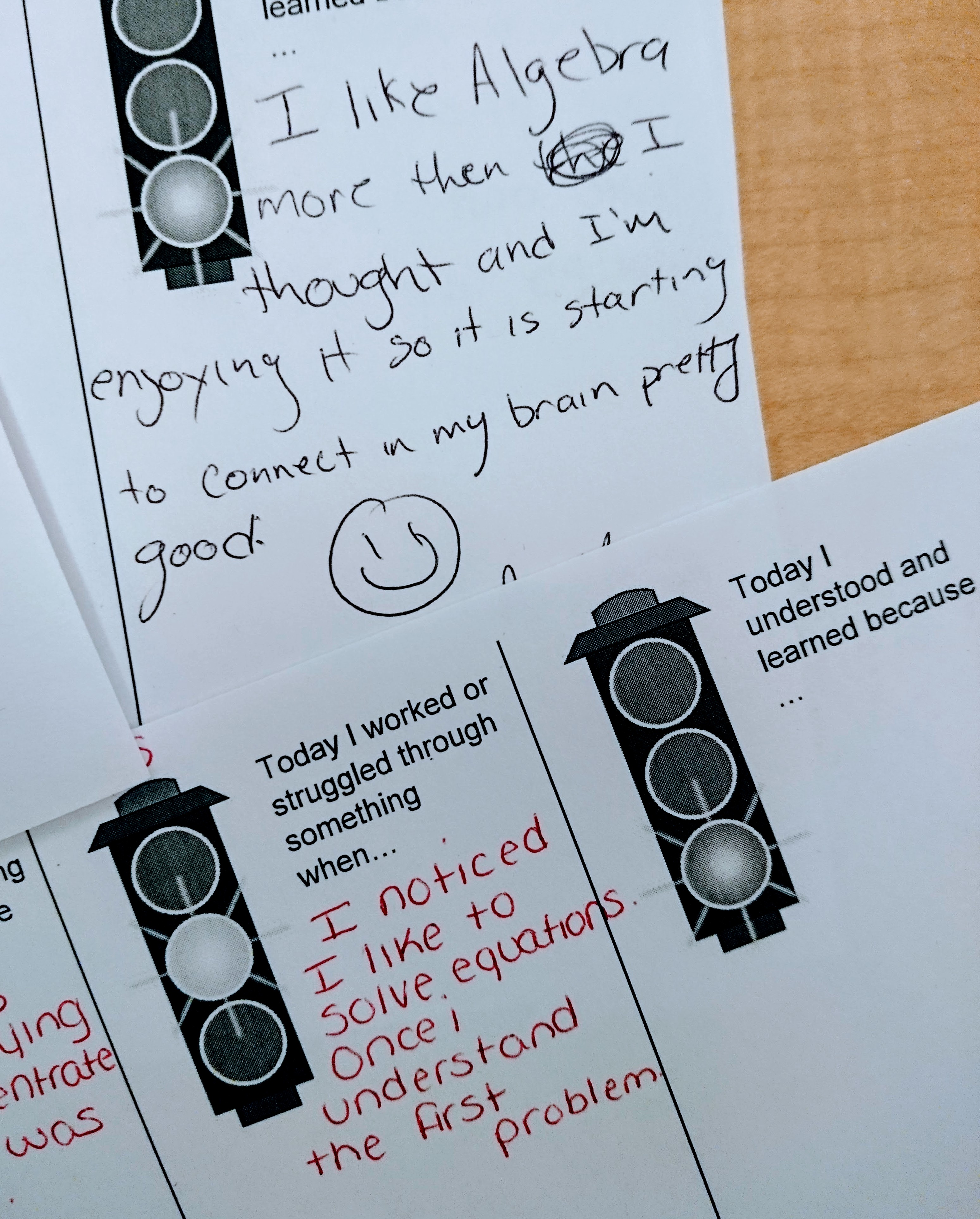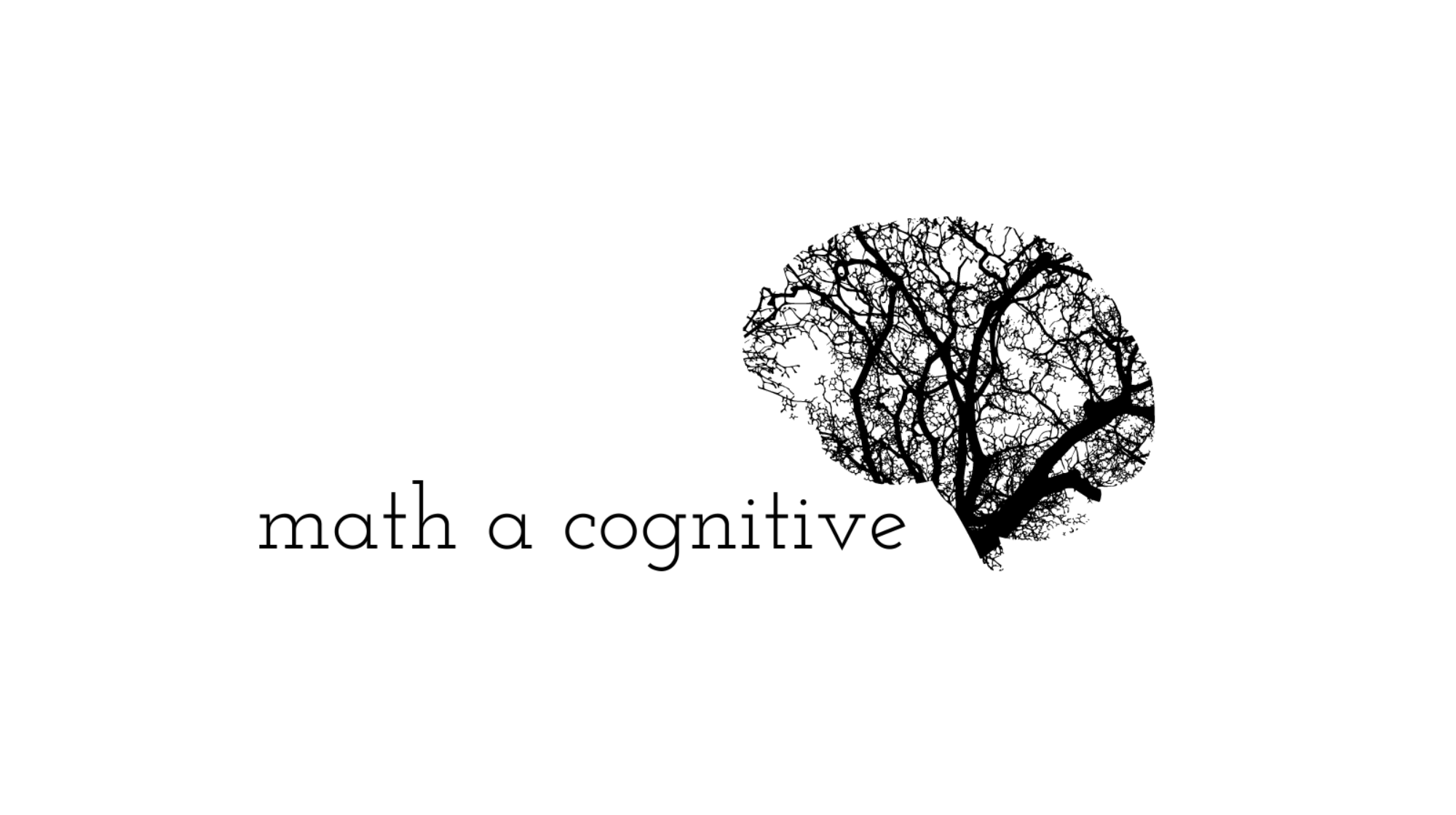This was one of my teaching goals for the school year, a way to build in a tighter feedback loop so I’d understand something about my students’ thinking each class and so they’d start to understand something about it too.
I hoped they’d pay attention to when they struggled and when they had success, what study strategies or teaching modes they preferred, how they were progressing, all the big questions.
In August it seemed simple, hand out a quarter sheet of paper, write a question on the board, collect responses. Go. It would be great.
(Oh, August. Always so hopeful.)
In practice, it was ok.
But I had to come up with a question every week targeting some bit of metacognition. And truthfully, it was often the last thing I planned, on the fly, rushing to get everything ready. It didn’t always get my best thinking. (Hi there, decision fatigue).
And they had to understand the question well enough to write an answer so they could get out the door (at 8:30 pm, after a full night of math, when they were kind of fried)
So, this winter, we (I) got a little more structured. I stumbled across this article , and decided to adapt and adopt the traffic light exit ticket.
I’d ask my students the same question every week: identify one moment when you were stuck, when you were slowed down, OR when you were cruising along.
I’d save the bit of brain power I’d spent on other questions for something else, they’d get good at answering this one question, it would teach them to self-monitor. It would be great. (January, also hopeful.)
In reality, a few weeks in, some students are still better than others at it. Some are distinctly perfunctory. Some are beautiful. Some go in my ‘reminders for a bad day’ file

The common question is worth taking a decision off my plate, though, and has made it easier for the students to focus their thinking. And, I’m hoping I’ll be able to give each student their own pile of tickets at the end of the term and have them look for patterns in their thinking.
I may refine it for next year, but I think it’s already better than the previous version. And both are better than nothing.
If you’d like to try it in your class, here’s a version of my ticket. (updated Jan. 2020)
